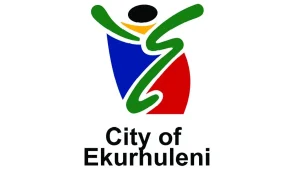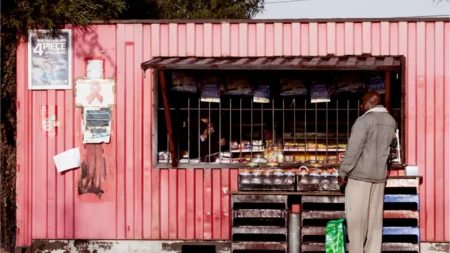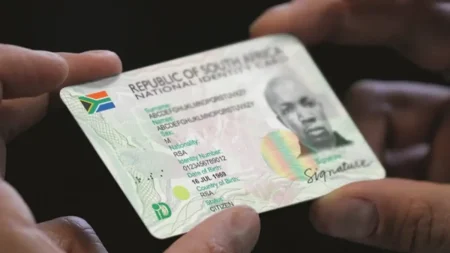Spaza shops, a vital part of South Africa’s informal economy, provide essential goods and services to local communities, especially in under-served areas. These small businesses have been crucial in addressing gaps in supply and promoting economic activity within townships and rural regions. However, running a spaza shop comes with various challenges, such as limited capital, access to resources, and navigating the bureaucratic hurdles of obtaining funding.
Fortunately, there are several funding opportunities available in the form of Small, Medium, and Micro Enterprises (SMME) grants and loans designed to help spaza shop owners expand, modernize, and thrive in a competitive market.
This article will explore some of the key funding options available, including grants, loans, and government initiatives specifically tailored for SMME owners in South Africa, with a particular focus on spaza shop operators.
Understanding the Importance of Spaza Shops
Spaza shops are small, independent retail businesses that usually operate from residential properties in township areas. They serve as essential sources of everyday goods, including groceries, household products, and other essentials. Despite being informal businesses, spaza shops contribute significantly to local economies by providing employment opportunities, promoting entrepreneurial activity, and offering goods at affordable prices.
For spaza shop owners, however, managing a business often means dealing with limited resources, inconsistent cash flow, and insufficient access to finance, which restricts their growth and development. This is where funding opportunities such as SMME grants and loans come into play.
Types of Funding Available to Spaza Shop Owners
Government Grants for SMMEs The South African government offers various grant programs designed to assist small businesses, including spaza shops. These grants do not require repayment and are typically aimed at supporting business growth, innovation, and sustainability. Below are some government initiatives that spaza shop owners can benefit from:
a. The Department of Small Business Development (DSBD) The DSBD is one of the primary government agencies focused on supporting SMMEs and cooperatives in South Africa. They offer several funding schemes that can help spaza shop owners improve their operations, including:
The SMME Fund: This fund offers financial assistance to SMMEs across different sectors, including retail businesses like spaza shops. The fund is meant to stimulate the growth of small businesses by providing grants for expansion, technology upgrades, and operational improvements.
The Black Business Supplier Development Programme (BBSDP): The BBSDP aims to support black-owned businesses by offering funding for the development and growth of suppliers in various sectors. Spaza shop owners can apply for this grant to enhance their businesses by improving their infrastructure, logistics, and access to markets.
b. The National Youth Development Agency (NYDA) For younger spaza shop owners, the NYDA provides a range of funding options, including grants for youth-owned businesses. The NYDA aims to support youth entrepreneurs by offering financial assistance to help with business startup costs, operational expansion, and business growth.
c. The Development Bank of Southern Africa (DBSA) The DBSA offers grants and loans aimed at developing infrastructure and supporting SMMEs in South Africa. Although more known for funding large infrastructure projects, the DBSA also provides financial assistance to small businesses through its various programs. Spaza shop owners can tap into this funding to expand their businesses, particularly in the areas of technology adoption and infrastructure development.
Microfinance and Loan Providers In addition to grants, spaza shop owners can access loans from both public and private sector institutions. These loans come with specific repayment terms, interest rates, and eligibility criteria. Some of the prominent microfinance institutions and loan providers for SMMEs include:
a. The South African Micro-Finance Apex Fund (SAMAF) SAMAF offers micro-loans to SMMEs that are registered and operate in the informal sector, including spaza shops. The loan amounts typically range from small to moderate sums, providing spaza shop owners with the capital needed to purchase stock, upgrade their premises, or hire staff. SAMAF also provides funding for business training and development.
b. The Industrial Development Corporation (IDC) The IDC provides financing to both emerging and established businesses. Their funding options include loans, equity finance, and grants for specific sectors. Spaza shop owners can apply for funding to expand their operations, increase product offerings, and even create new business models.
c. Commercial Banks Commercial banks in South Africa, such as Standard Bank, First National Bank (FNB), and Absa, offer specialized loans to SMMEs. Spaza shop owners can access working capital loans or asset finance products to purchase equipment, expand inventory, or enhance operational capacity. However, the process may be more rigorous than with other funding options, requiring formal business plans and financial documentation.
Private Sector Support and Grants Apart from government institutions and banks, the private sector is increasingly providing funding and grants to SMMEs. Large corporations often have corporate social responsibility (CSR) initiatives aimed at fostering the growth of small businesses in South Africa. These include grants, partnerships, and mentorship programs. Some of the private sector entities offering such support include:
a. The Vodacom Foundation The Vodacom Foundation offers grants to SMMEs in various sectors, including retail, to promote economic growth in underserved communities. Through this initiative, spaza shop owners can access funding to grow their businesses while benefiting from mentorship and business skills training.
b. The Small Enterprise Development Agency (SEDA) SEDA offers support in the form of grants and loans, business development services, and mentorship. Their funding schemes aim to enhance the capacity of spaza shop owners by providing them with necessary resources and tools for growth.
SMME Competitions and Innovation Grants Many funding opportunities for SMMEs, including spaza shops, come through business competitions or innovation grants. These programs are designed to encourage entrepreneurship and reward businesses with creative solutions or unique products. By participating in these competitions, spaza shop owners may win cash prizes, mentorship, and further funding opportunities.
a. The SAB Foundation Social Innovation Awards This is a notable competition that supports South African SMMEs with innovative solutions to social problems. Spaza shop owners who have innovative ideas that could impact their community or improve their business models could apply for this funding.
b. The Enablis Business Competition Enablis runs a competition for young entrepreneurs across Africa, providing funding, mentorship, and business development services. Spaza shop owners can participate to receive funding that will assist in modernizing their businesses.
How to Apply for Funding
Applying for grants and loans often involves a detailed process that requires business owners to provide specific documentation. Here are the general steps that spaza shop owners should take when applying for funding:
Ensure Business Registration: Most funding programs require that the business is formally registered. Spaza shop owners should ensure that their business is registered as a sole proprietorship, partnership, or a legal entity like a Pty Ltd.
Prepare a Business Plan: A well-prepared business plan outlining the business model, goals, financial projections, and funding needs is critical when applying for loans or grants. This document serves as a roadmap for business success and an important requirement for most funding applications.
Submit Required Documentation: This may include financial statements, proof of business registration, tax compliance certificates, and any other relevant documents requested by the funding organization.
Follow Up and Keep Records: After submission, applicants should follow up regularly with the relevant institutions to ensure their applications are being processed.
Check also: 5 Affordable Side Hustles to Start in January for Extra Income
Spaza shops are essential contributors to South Africa’s economy, but accessing the necessary funding for growth and sustainability remains a challenge for many owners. Fortunately, a wide variety of funding opportunities in the form of government grants, micro-loans, private sector initiatives, and business competitions are available to help spaza shop owners overcome financial barriers.
By tapping into these resources, spaza shop owners can access the capital they need to improve their businesses, invest in technology, expand their product offerings, and reach new customers. With careful planning and the right funding support, spaza shops can continue to thrive and play a crucial role in the country’s economic development.
Related: 4 Easy Side Hustles to Make Money from Your Home with Minimal Effort in 2025










